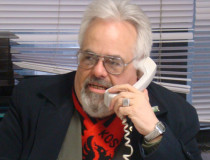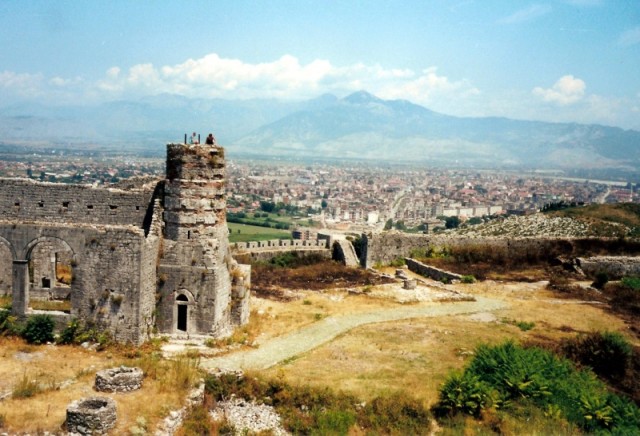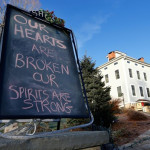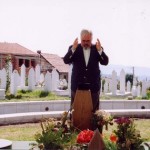
Stephen Schwartz
The number of victims was fewer, even microscopic by comparison, the massacre of children, in a public school, in Newtown, Connecticut, is reminiscent in its calculated cruelty of the Holocaust against the Jews during the second world war. Then, also, children were struck down, and denied the potential of their lives.
Further, I write these words from Sarajevo, in Bosnia-Hercegovina, 20 years after the commencement of the Serbian aggression in 1992. Memory is fresh, regarding the three-year siege in which some 12,000 civilians, including at least 1,500 children, were murdered deliberately by snipers and other military and irregular personnel. Bosnian spiritual Muslims, representing a strong Sufi tradition, interrogate themselves in an agonized manner about what might have led to the nightmare they experienced.
During my current travels, I was moved by consideration of the role of Albanians in shielding local and refugee Jews from German military occupiers in the small Balkan country, almost 70 years ago. Albania stands out as a land where no Jews were handed over to the Nazis, thanks to the efforts of Catholics, Sufi and conventional Sunni Muslims, and Orthodox Christians. It was long believed, on the basis of Yugoslav figures, that while several thousand Jews were protected in Albania itself, 210 were seized and deported from Kosova in 1944. I republished this figure in my 2005 “Islamic survey of Balkan Jewish history,” Sarajevo Rose.
Albania suffered under the Communist oppression of dictator Enver Hoxha, who ruled from 1944 until his death in 1985. One of the most extreme Stalinist tyrants, Hoxha suppressed religion and in 1967 he declared Albania the world’s first atheist state. As in many post-Communist countries, however, the government archives have recently been opened. A new edition of an authoritative study, Hebrenjte në Shqipëri: Prania dhe shpëtimi (Jews in Albania: Presence And Rescue), by the historian Shaban Sinani, was issued in Tirana, the Albanian capital, in 2009. In its pages, Sinani notes that 2,265 Jews were protected in Albania during the German domination of 1943-44, as confirmed by Israeli researchers. But Sinani reproduces German transport documentation from the 1944 raid, showing that only 35 Jews were deported to concentration camps from Kosova. Remarkably, two Muslim women married to Jews, Emine Hilmi and Farie Hilmi, were in the list of the doomed.
As described by another Albanian historian, Apostol Kotani, and cited in my Sarajevo Rose, a special role in concealing Jews was assumed by the inhabitants of Berat, a gorgeous southern Albanian city I visited some weeks past. A Jewish child hidden there asked, when they were moved to a rural sanctuary, “Is there another Berat for us to go to?” An Albanian municipal official answered, “Yes, of course. Berat is everywhere, because wherever you go Albania and the Albanians are there to protect you.”
In the ranks of Jewish children rescued in Albania was Robert Schwartz, a man born of Ashkenazi (north European) Jewish parents in Sarajevo, Bosnia-Hercegovina. In 1938, aged six, he was taken to the northern Albanian city of Shkodër, long known as Scutari from its Italian name. Shkodër is traditionally a center of Catholic culture, but Schwartz thrived there. He wrote in verse of Shkodër, “around my heart a song for you never ceased.” He became a noted translator of foreign works into Albanian.
Many Albanians have asked me if I am related to Robert Schwartz, an honor I cannot claim, although our paths have paralleled in some respects. Schwartz died in 2003, and had written a poem titled “For My Gravestone,” in which he said, “Of all his biggest loves/Of all his strongest loves/Only one was never in vain:/That for the Albanian language.” I feel his presence as a mentor, as a brother, as a parent, as a distant relative I never had.
Robert Schwartz, sheltered from Hitler’s demonic accomplices, later avoided the annihilation inflicted on most of the Shkodër Catholic intellectuals and numerous independent-minded writers by the Hoxha dictatorship. One of Schwartz’s greatest friends was another translator, Amik Kasoruho, who did not escape, as a child, the Communist terror imposed on his country. Kasoruho, born in Albania the same year as Schwartz in Sarajevo, met the Jewish luminary-to-be in the Tirana high school in 1944, when both were 12.
But Kasoruho’s father was executed in 1951, with 22 more Albanians deemed threatening to the Communist regime, and Kasoruho, as the son of an “unperson,” in the immortal coinage of George Orwell, was expelled from college and jailed. After he was released from prison in 1956, Kasoruho was exiled to the Albanian town of Kavaja until 1962, when he and his family were deported to a small village. Forced to work as a laborer in agriculture and construction, he was kept there until 1990, when Albanian Communism began to disintegrate. .
According to Kasoruho, Robert Schwartz survived under Hoxha by his modesty and his refusal to attempt, as some Albanian authors did, satisfaction of the demands of the Communist order. Instead, he was happy to serve as a translator. As Kasoruho has recalled, Schwartz “closed himself in his own universe, unknown to most people, which he guarded jealously, and which he built without extended his hand in begging for anything.” Schwartz resided with his wife and son in a one-bedroom apartment with a kitchen, had five heart bypass operations, lived thanks to a pace-maker, and had to climb four flights of stairs to reach his roof. This was in the year 2003 when, at the end of his life, he was made an honorary citizen of Tirana. In 1995 he was awarded the Cross of Merit by the German Federal Republic.
In another of his poems, written in 1991, with the definitive collapse of Albanian Communism, Robert Schwartz defined the environment he was forced to endure. It is titled, “Farewell Verses for a Young Friend,” and is dedicated to Kasoruho. There Schwartz wrote, “They shattered our dreams, they killed them./We could not walk among snakes.”
A poem from the next year, 1992, memorializes the siege of Sarajevo. It is headed, “They Killed My Sarajevo!” and begins, “They killed my Sarajevo,/The city where I was born,/the eternally loving town/where the East embraced the West/and the churches stood by the mosques/together with the synagogues…”
The children murdered in Newtown, in fascist and Communist concentration camps, in Sarajevo and similarly-wounded cities – forced to, in Robert Schwartz’s words, “walk among snakes” – are one. The children saved from these abominations are one. And we who must act to save them must act as one. I am as one with Robert Schwartz, a man I never knew. That is our sole option, for our own moral self-defense.
[Note: This text draws on materials in the short book Nje Kalvados Me Robert Shvarcin (A Shot of Calvados With Schwartz), by Amik Kasoruho and Roland Tasho, Onufri Publishing House, Tirana, Albania, 2007.]





